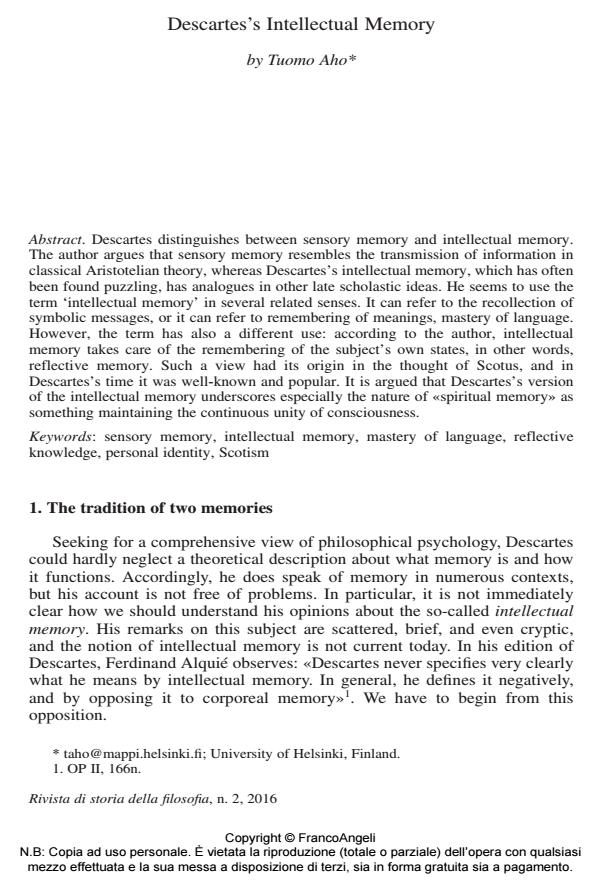Descartes’s Intellectual Memory
Titolo Rivista RIVISTA DI STORIA DELLA FILOSOFIA
Autori/Curatori Tuomo Aho
Anno di pubblicazione 2016 Fascicolo 2016/2
Lingua Italiano Numero pagine 25 P. 195-219 Dimensione file 678 KB
DOI 10.3280/SF2016-002002
Il DOI è il codice a barre della proprietà intellettuale: per saperne di più
clicca qui
Qui sotto puoi vedere in anteprima la prima pagina di questo articolo.
Se questo articolo ti interessa, lo puoi acquistare (e scaricare in formato pdf) seguendo le facili indicazioni per acquistare il download credit. Acquista Download Credits per scaricare questo Articolo in formato PDF

FrancoAngeli è membro della Publishers International Linking Association, Inc (PILA), associazione indipendente e non profit per facilitare (attraverso i servizi tecnologici implementati da CrossRef.org) l’accesso degli studiosi ai contenuti digitali nelle pubblicazioni professionali e scientifiche.
The author argues that sensory memory resembles the transmission of information in classical Aristotelian theory, whereas Descartes’s intellectual memory, which has often been found puzzling, has analogues in other late scholastic ideas. He seems to use the term ‘intellectual memory’ in several related senses. It can refer to the recollection of symbolic messages, or it can refer to remembering of meanings, mastery of language. However, the term has also a different use: according to the author, intellectual memory takes care of the remembering of the subject’s own states, in other words, reflective memory. Such a view had its origin in the thought of Scotus, and in Descartes’s time it was well-known and popular. It is argued that Descartes’s version of the intellectual memory underscores especially the nature of «spiritual memory» as something maintaining the continuous unity of consciousness.
Parole chiave:Sensory memory, intellectual memory, mastery of language, reflective knowledge, personal identity, Scotism
Tuomo Aho, Descartes’s Intellectual Memory in "RIVISTA DI STORIA DELLA FILOSOFIA" 2/2016, pp 195-219, DOI: 10.3280/SF2016-002002